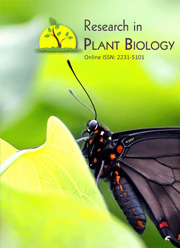Effective Degradation and Evaluation of Coconut Waste Compost
Keywords:
Compost, Coir pith, Fertilizer, Bioactive compoundsAbstract
Coir pith is an agro waste from coir industry. Since it is composed of lingocellulosiccompounds the total degradation of these compounds was considered notpossible. Coir pith undergoes decomposition very slowly because of its low pentose tolignin ratio of less than 0.5% which is minimum required for the slow decomposition oforganic matter in the soil. An attempt has been made to degrade the coir and has beentested for its efficiency in acting as a bio fertilizer. Usage of inorganic fertilizers inagricultural production has resulted in serious problems in infertility of the soil and italso contaminates the underground water. Biodegradation of coir pith by the bacterialisolates along with urea can produce value added biotechnological products like bioactivecompounds and bio fertilizers. In this present study, bacterial colonies obtainedfrom coir pith have been used for coir composting. The composted coir pith is costeffective and it improves the yield of selected plants and also maintains the soil fertility.The use of basal and foliar spray coir pith based fertilizers at different concentration caninfluence the growth and productivity of the plants.Downloads
Download data is not yet available.
Published
22-08-2013
How to Cite
Robison, J. P., & Jayashree, R. (2013). Effective Degradation and Evaluation of Coconut Waste Compost. Research in Plant Biology, 3(4). Retrieved from https://updatepublishing.com/journal/index.php/ripb/article/view/2509
Issue
Section
Short Communications



 .
. 